3 More Thoughts about Cycling City London

Here are three more thoughts about cycling in London from an outsider’s perspective, following on from my first three thoughts about cycling in London.
4) Lime Bikes Rule
Lime bikes are the most popular hire bikes, by a distance. They are dockless electric bikes, hired using an app.
Using pay-as-you-go there’s an unlocking fee of £1, then a rate of around 27p a minute. Alternatively, you can buy a pass for a set number of minutes (e.g. 60 minutes for £6.99).
Part of the attraction is how quick and easy it is to get hold of one. Apparently 97% of Londoners are within two minutes of a Lime bike.
Where Santander cycles are only at docking stations in central London, Lime bikes are scattered across a wider area of the city.
There are some designated parking areas for hire cycles, but using them isn’t compulsory.
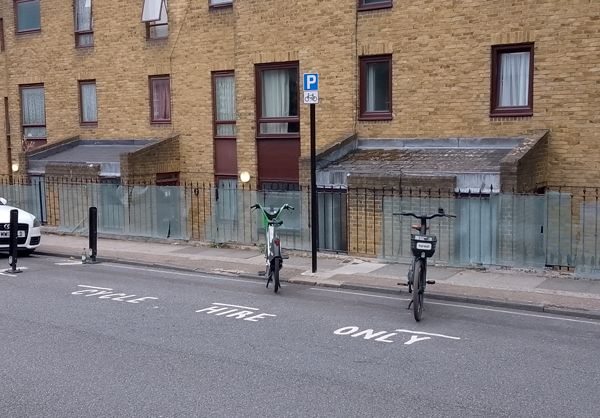
This isn’t a case like web search where a monopoly will develop naturally, and Lime’s main dockless e-bike competitor is Forest. Their bikes are also widespread, but not yet as numerous as Limes.
There are plenty of privately-owned cycles in London too.

Bike ownership is limited to those who have somewhere to keep one, and to an extent by fear of theft.
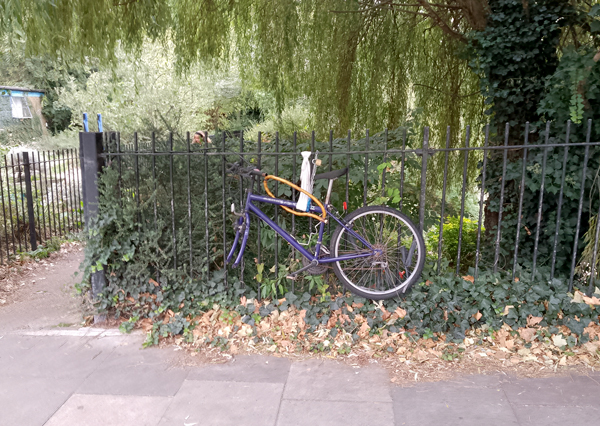
That’s where cycle hangars come in useful.
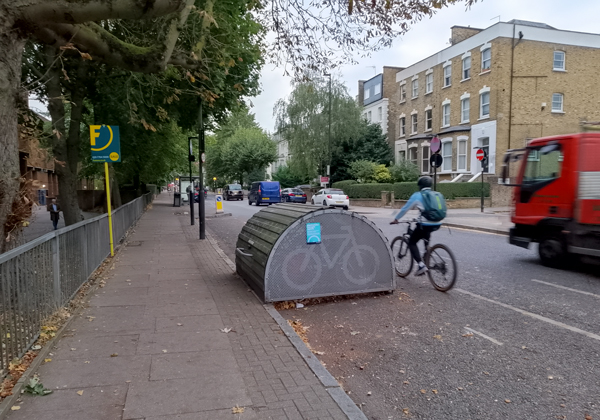
5) Santander Cycles Remain Cheap and Useful

As a certified cheapskate, I used Santander Cycles for my bike trips in London.
If you buy a £3.50 day pass, you can have an unlimited number of 60-minute rides. That’s good value.
If you overshoot (i.e. don’t dock your bike within an hour of starting your ride), you’re charged an extra £1.65.
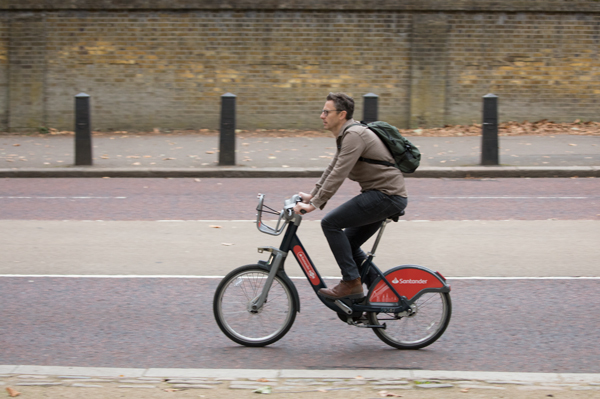
Santander also have e-bikes, which are a bit more expensive.
I noticed that all Santander cycles are equipped with Schwalbe Marathon tyres – my personal favourite wheel-rubber, for fewer punctures.
Other cycle hire options include Swapfiets.
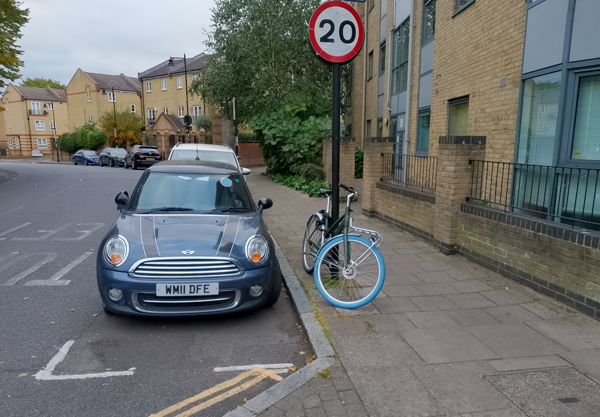
6) London’s a Good Place for Cycle Infrastructure-Spotting
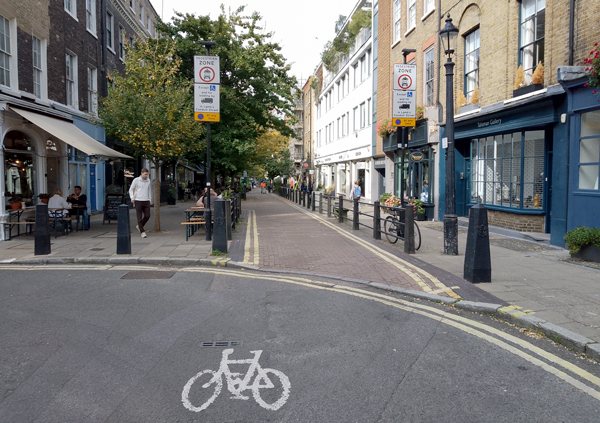
In North Yorkshire you’re unlikely to see any cutting-edge active travel infrastructure. A shared use pavement is about as far as the council is prepared to go.
London is different. You can see nearly everything you’ve read about in LTN 1/20 Cycle Infrastructure Design.
Lamb’s Conduit Street (pictured above) is filtered – it doesn’t allow through motor vehicle traffic – and it is thriving as a result.
A little further north, there’s Landsdowne Terrace. At its junction with Guilford Street, there’s a continuous footway to reinforce pedestrian priority over motor vehicle traffic.
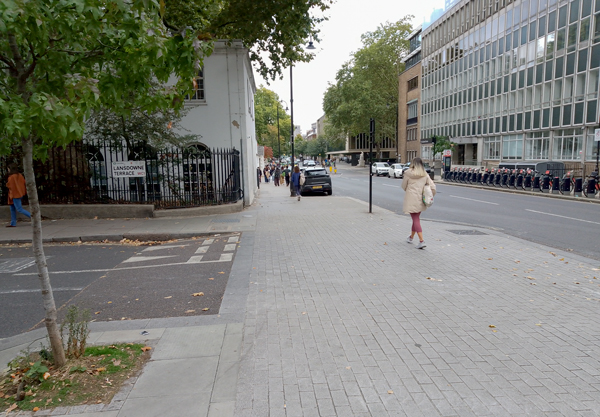
Also in this area is Tavistock Place and its gold-plated contraflow cycling.
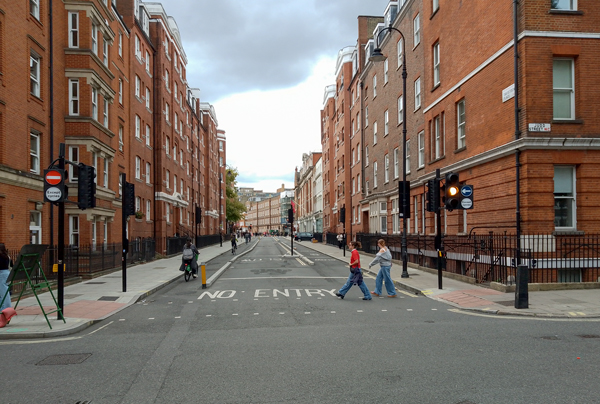
Of course not all London’s infrastructure is Grade A. This cycle lane on the inside of car parking is acceptable in theory, but the buffer zone/door zone looks meagre to me.
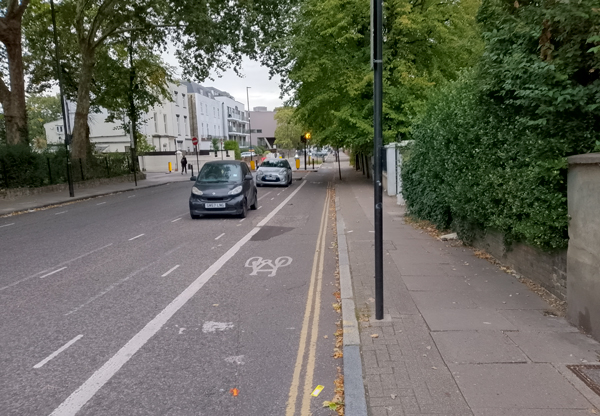
Hyde Park Corner must have been a difficult nut to crack. The design is shared space for pedestrians and cyclists. It just about works, but it’s not great.
And cycling up Gloucester Place didn’t feel very safe.
At some point along Gloucester Place there was a blue sign suggesting a two-stage right turn. At the time, it wasn’t obvious to me what manoeuvre it was proposing or how I would carry it out.
Still, if everything in London was perfect there would be nothing for them to work on.

